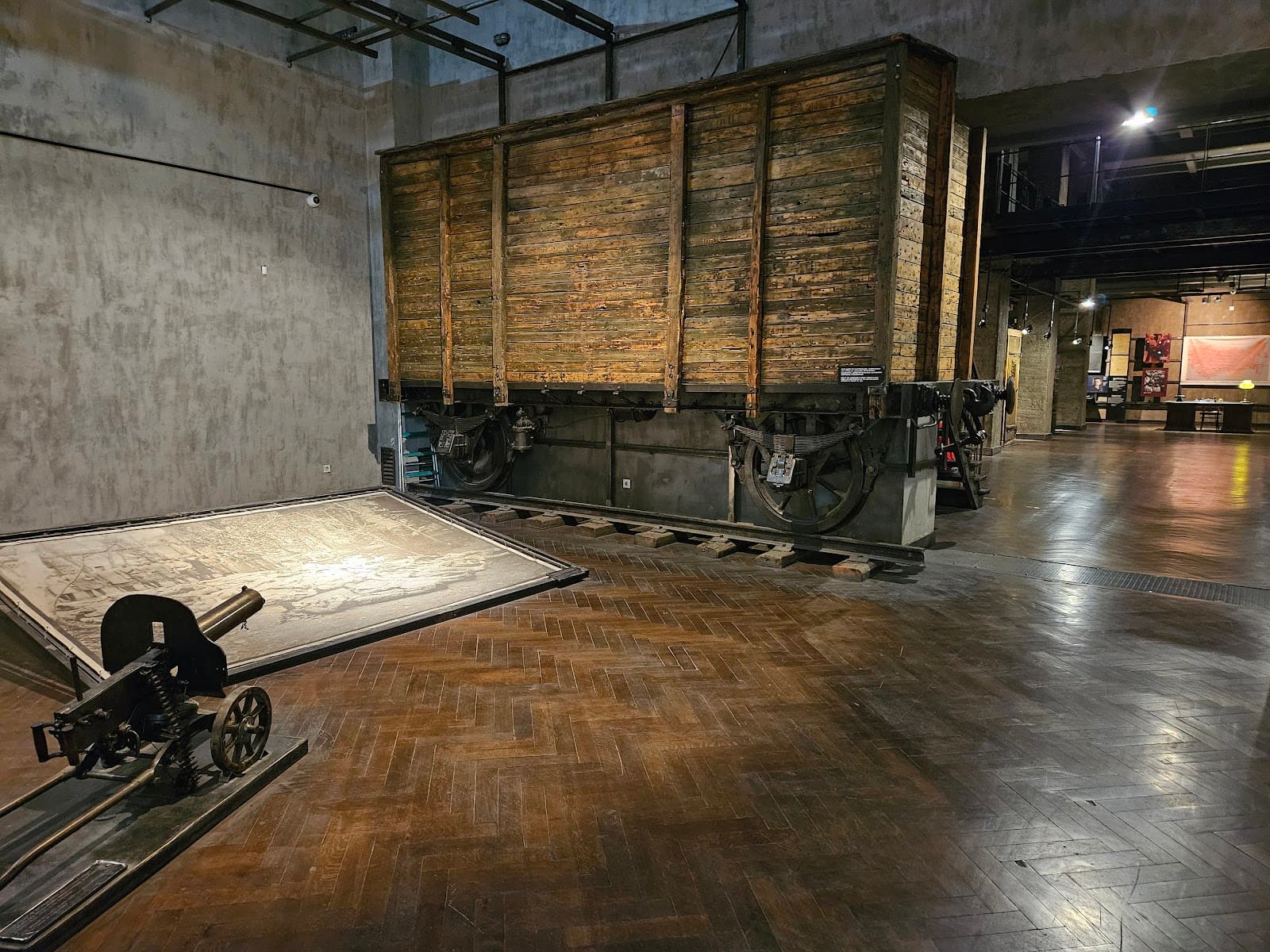
Museum of Soviet Occupation
A concise exhibition documenting Georgia's struggle and resistance during decades of Soviet occupation.

Highlights
Must-see attractions

Social
From TikTok & Reddit
Best Time
Fewer crowds, better focus

Museum of Soviet Occupation
Best Time
Fewer crowds, better focus

Highlights
Must-see attractions
A concise exhibition documenting Georgia's struggle and resistance during decades of Soviet occupation.
"An eye-opening, crucial, and enlightening experience for understanding Georgia's past."
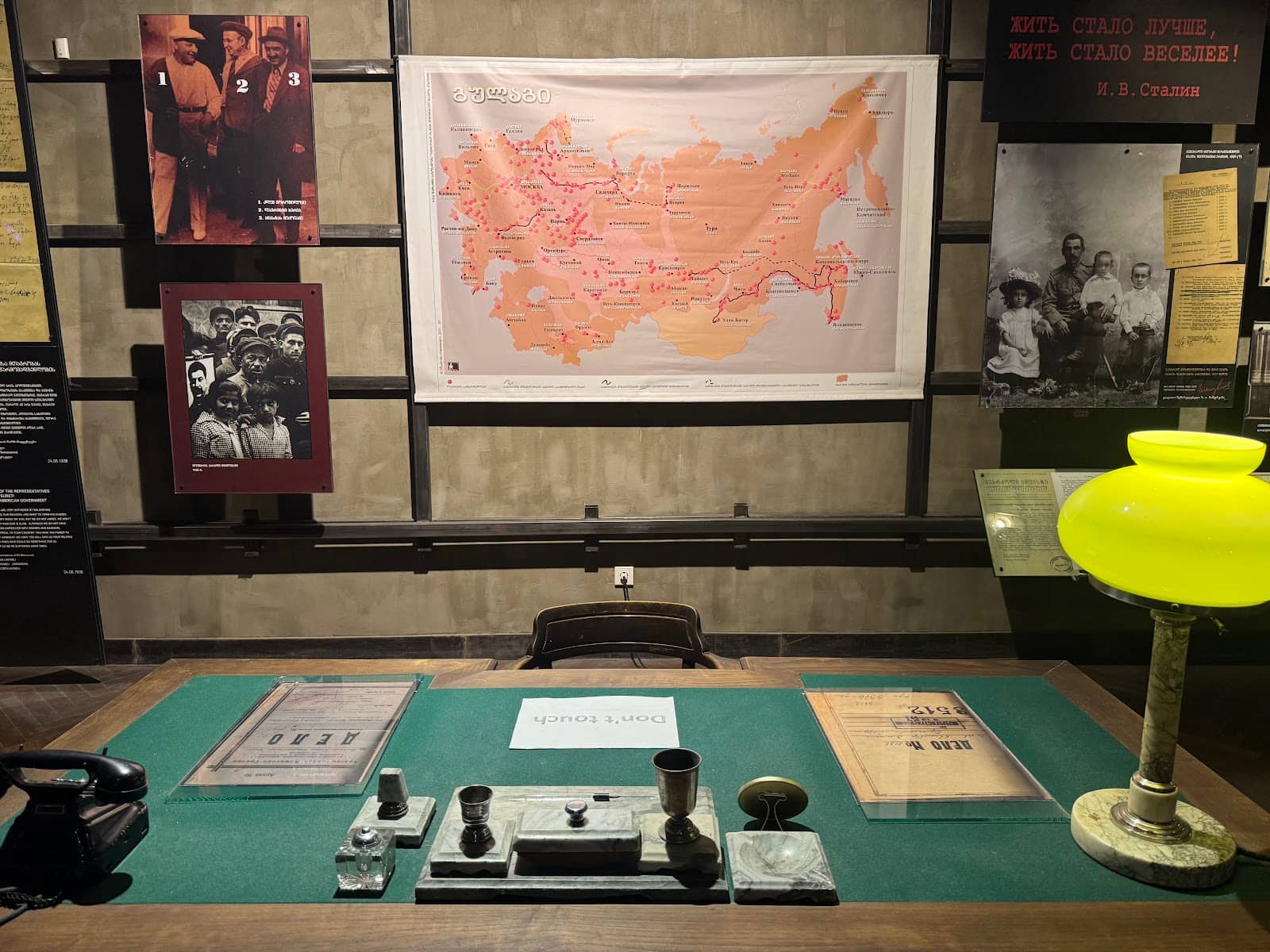
Budget for Entry Fee
Foreigner ticket prices can be high (around 40 GEL). Factor this into your museum budget. :moneybag:
Focus on Key Exhibits
The exhibition is concise. Prioritize the rail car and portraits for maximum impact. :eye:
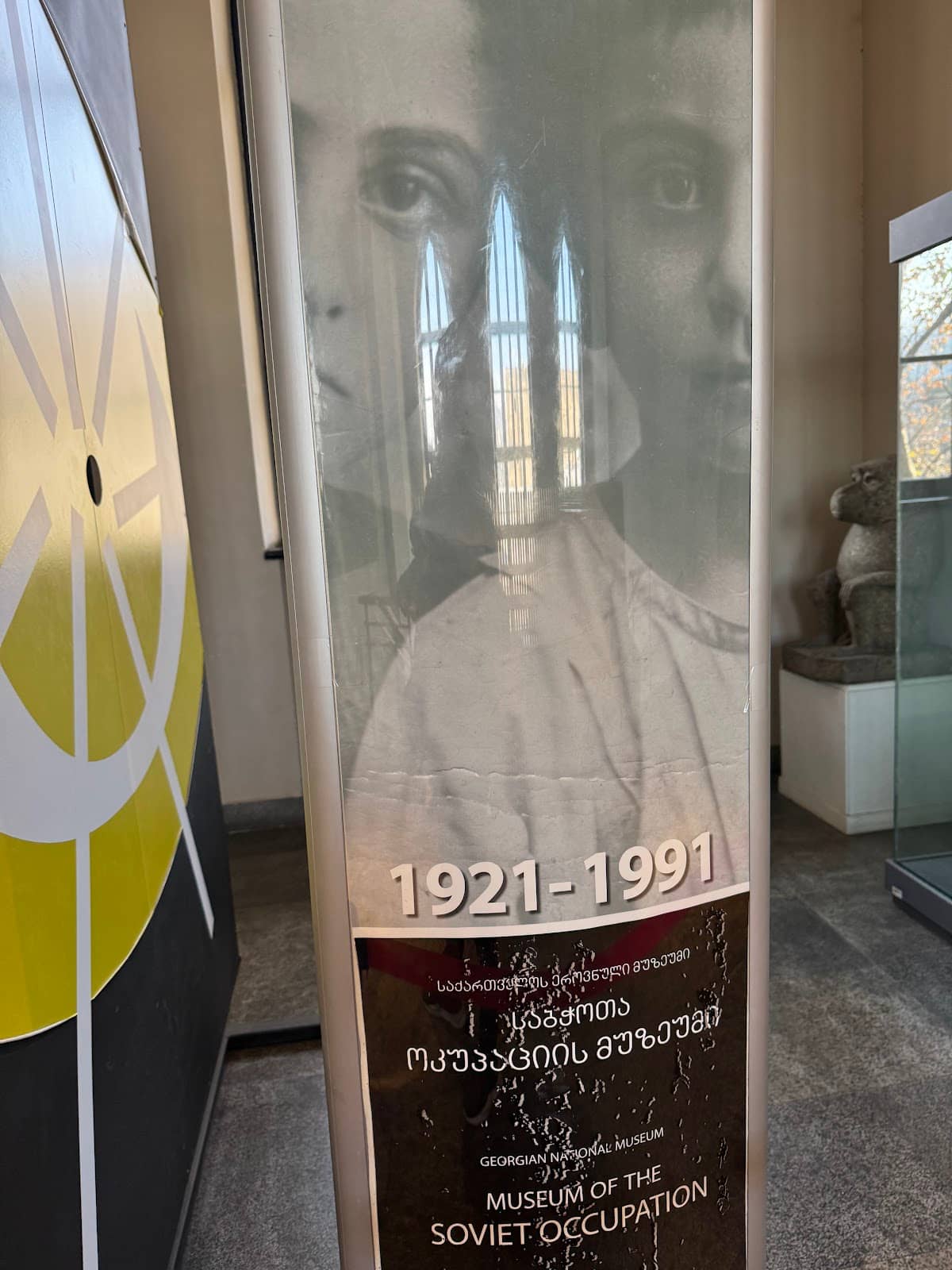
Highlights
Discover the most iconic attractions and experiences

Bullet-Riddled Rail Car
Main exhibition hall
A stark reminder of Soviet brutality, this rail car bears the marks of civilian transport during executions.

Portraits of Resistance
Exhibition walls
Numerous portraits of individuals who resisted Soviet rule, offering a visual testament to the fight for freedom.
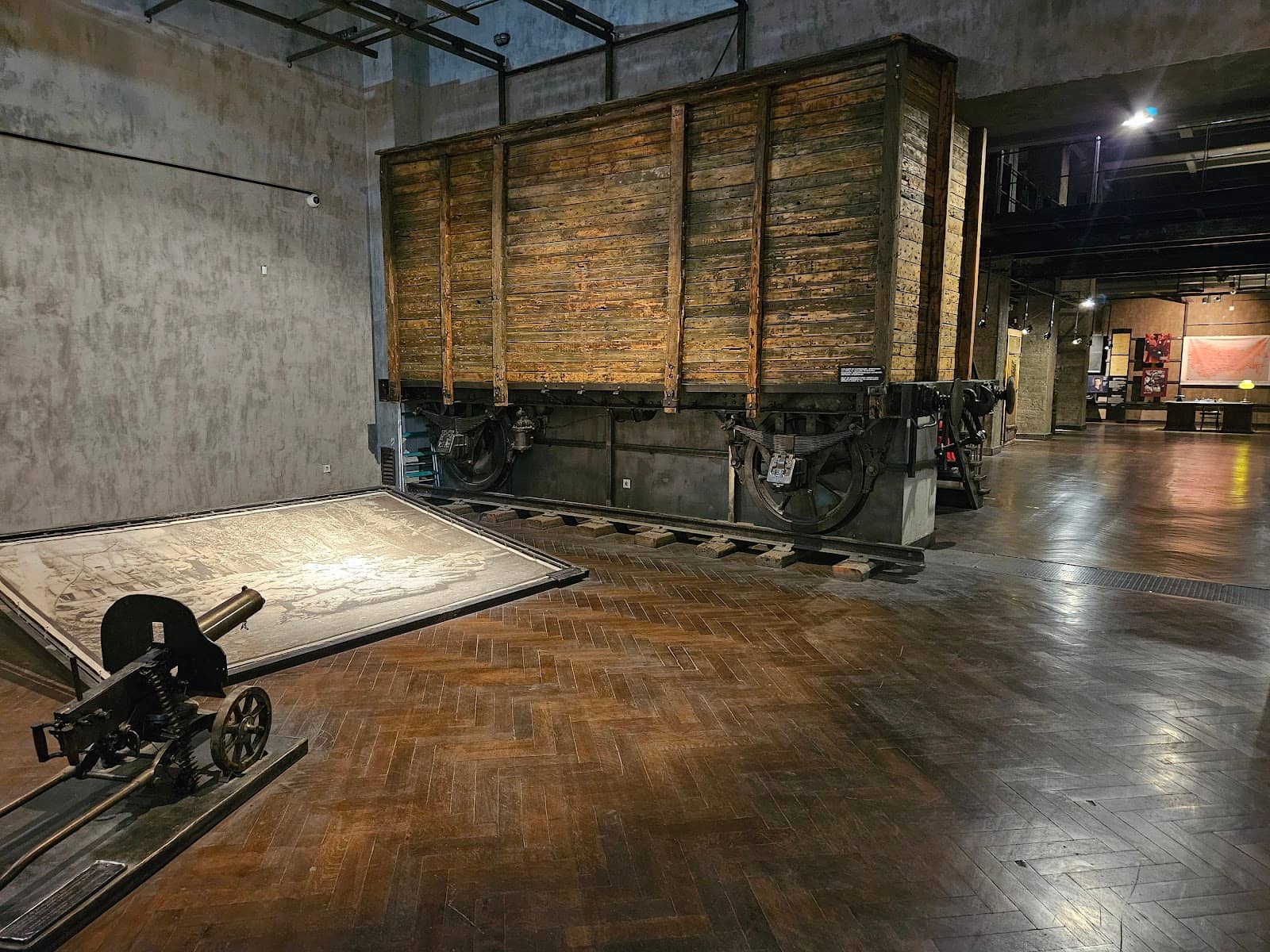
Historical Artefacts
Display cases
Behind glass, discover historical artifacts and replicas that shed light on daily life and struggles under Soviet occupation.
Plans like a pro.
Thinks like you
Planning Your Visit
Understand the Entry Fee
Language Barriers & Depth
Best Times
Insider Tips
from TikTok, Instagram & Reddit
Budget for Entry Fee
Foreigner ticket prices can be high (around 40 GEL). Factor this into your museum budget. :moneybag:
Focus on Key Exhibits
The exhibition is concise. Prioritize the rail car and portraits for maximum impact. :eye:
Combine with Other Museums
This museum is part of the Georgian National Museum. Explore other exhibits for a fuller experience. :world_map:
Bring a Translator App
Most text is in Georgian/Russian. An app can help decipher details. :iphone:
Tips
from all over the internet
Budget for Entry Fee
Foreigner ticket prices can be high (around 40 GEL). Factor this into your museum budget. :moneybag:
Focus on Key Exhibits
The exhibition is concise. Prioritize the rail car and portraits for maximum impact. :eye:
Combine with Other Museums
This museum is part of the Georgian National Museum. Explore other exhibits for a fuller experience. :world_map:
Bring a Translator App
Most text is in Georgian/Russian. An app can help decipher details. :iphone:
What Travellers Say
Reviews Summary
The Museum of Soviet Occupation offers an eye-opening, albeit concise, look into Georgia's history under Soviet rule. While some visitors find the exhibition brief and the entry fee high, particularly with limited English translations, others commend its informative nature and the powerful reminder of the fight for freedom. The bullet-riddled rail car is a standout exhibit, though the overall presentation could be more engaging for some.
"Not worth even 1/4 of the exorbitant, RIDICULOUS entry fee of 30 GEL ($17.50 AUD!) for an exhibition that takes less than 15 minutes to see. It's one big room and a partial top floor filled with documents (all in Georgian & Russian, no translations), too many portraits of people, and a few historical artefacts/replicas behind glass cases with overly-wordy signs (long slabs of text detailing who, what, when, etc., dryly written like boring history books). Poorly curated with minimal narrative and little to engage visitors emotionally.
No introduction to the museum or the Soviet Occupation; no sound to make it engaging; ultra-low lighting that makes it hard to read signs; videos with little to no context given; no interesting human content like oral history interviews with older people who participated in the rebellions/their children, journal entries, etc.; and no sense of the link between the occupation and the fight over the 100 years since, including the current protests.
This place needs SO much more life, and SO much more content to justify its price. I wish I'd skipped it; I usually love learning about history, but I would have got more out of a good documentary I could have watched for free on YouTube. Staff selling tickets are also unnecessarily cold."
Sandra S
"This is part of one floor of the Georgian National Museum. Much of the exhibition concerns the intrusion into Georgia in the early 1920s as the Bolsheviks took over Russia and expanded. You'll learn of the brutality, as Georgians who resisted were executed. The common photo you see is a bullet hole-riddled rail car that transported civilians. Much of the details end with the 1960s, with just a few details of the end of the USSR. If I were Georgian, this would be a good historical reminder. To be fair, I was expecting more about Soviet occupation across the years. It's a quick review. If you go for this, spend time in other museum exhibits. You'll see lots about early archaeological findings. The only photos I've included are from an exhibition of Iranian art from the mid-1800s. The paintings are an interesting contrast to lives for women today.
Visit to the Georgian Fine Arts museum as well. It's another location and time well spent."
G P
"The exhibition was very disappointing, especially considering the high ticket price for foreigners (40 GEL, almost 13€). The displays felt fragmented and poorly connected, with no clear narrative. it offered no structured explanation of the period, reducing everything to lists of executed people and odd installations of objects without any proper context. On top of that, the staff was quite rude. Overall, it felt like a waste of both time and money"
Egor Shamshurin
What People Like
What People Dislike
Frequently Asked Questions
🚇 🗺️ Getting There
The museum is located within the Georgian National Museum complex in Tbilisi. You can reach it easily by taxi or public transport. Many visitors find it a convenient stop when exploring the city center. :bus: :taxi:
As part of a larger museum complex, accessibility is generally good. However, specific details about ramps or elevators should be confirmed with the Georgian National Museum directly. :wheelchair:
🎫 🎫 Tickets & Entry
Ticket prices can vary, with foreigners often paying a higher fee (around 40 GEL). It's advisable to check the official Georgian National Museum website for the most current pricing. :ticket:
While some national museums offer online booking, it's best to check the Georgian National Museum's official website or inquire directly about purchasing tickets in advance. :computer:
The museum generally follows the operating hours of the Georgian National Museum. Typically, it's open from Tuesday to Sunday, with hours often around 10 AM to 6 PM. Always verify current hours before your visit. :clock:
The Museum of Soviet Occupation is part of the Georgian National Museum. If a general pass covers the entire complex, then yes. Inquire about specific pass inclusions. :id_card:
🎫 🧭 Onsite Experience
Many visitors report that the exhibition can be seen in less than 15 minutes due to its size and scope. However, allow more time if you wish to read all the text. :stopwatch:
The primary languages for the exhibits are Georgian and Russian. While some translations may be available, comprehensive English text is limited, which can be a challenge for non-Russian/Georgian speakers. :books:
The museum features documents, portraits of resistance figures, and historical artifacts or replicas behind glass cases, detailing the period of Soviet occupation. :scroll:
Some visitors find the museum lacks emotional engagement due to its presentation style and limited narrative. Others find it an eye-opening and crucial historical reminder. :thought_balloon:
The lighting is often described as very low, which can make it difficult to read the signs and text within the exhibition. :low_brightness:
🍽️ 🍽️ Food & Dining
As it's part of the Georgian National Museum, there might be a cafe within the larger complex. However, dedicated dining facilities within the Soviet Occupation exhibit itself are unlikely. :coffee:
The museum is located in a central area of Tbilisi, offering numerous dining options nearby, from traditional Georgian cuisine to international fare. :restaurant:
📸 📸 Photography
Photography policies can vary. It's best to check for signage at the entrance or ask museum staff. Often, flash photography is prohibited. :camerawithflash:
The bullet-riddled rail car and the portraits of resistance fighters are often considered the most impactful visual elements for photography. :iphone:
For Different Travelers
Tailored advice for your travel style
👨👩👧 Families with Kids
If visiting with family, consider it more suitable for older teenagers or adults who can engage with historical narratives. It's advisable to prepare them beforehand about the sensitive themes. Combining this visit with other, more visually engaging exhibits within the Georgian National Museum might offer a more balanced experience for the whole family. :family_mm:
💰 Budget Travelers
To maximize your budget, consider if the historical insights are a priority for your trip. You might also look into combined tickets or passes for the Georgian National Museum if available, or prioritize free activities and other museums with lower entry fees. :moneywithwings:
Deep Dives
In-depth insights and expert knowledge
Understanding the Soviet Occupation of Georgia
The exhibition highlights the executions of those who resisted and the pervasive impact of Soviet rule on Georgian society. While much of the detailed narrative within the museum concludes around the 1960s, it serves as a crucial historical reminder of the struggle for freedom and national identity. Visitors seeking a deeper understanding of Georgia's complex past will find this museum an enlightening, albeit concise, experience.
It's important to note that the museum is part of the larger Georgian National Museum, and its presentation style has been a point of discussion among visitors. Some find the curation dry and lacking emotional depth, while others appreciate the direct presentation of historical facts and artifacts as a testament to the Georgian spirit.
Navigating the Exhibition Experience
A common point of feedback is the limited availability of English translations for the exhibit text, which is primarily in Georgian and Russian. This can make it challenging for international visitors to fully grasp the context and details of the occupation. Additionally, the low lighting in some areas can further impede readability.
Despite these challenges, the museum offers a powerful visual of the resistance and the impact of Soviet rule. The iconic bullet-riddled rail car is a particularly poignant exhibit. For those interested in the history of Soviet repression in the Baltic states and Eastern Europe, this museum provides a specific Georgian perspective.

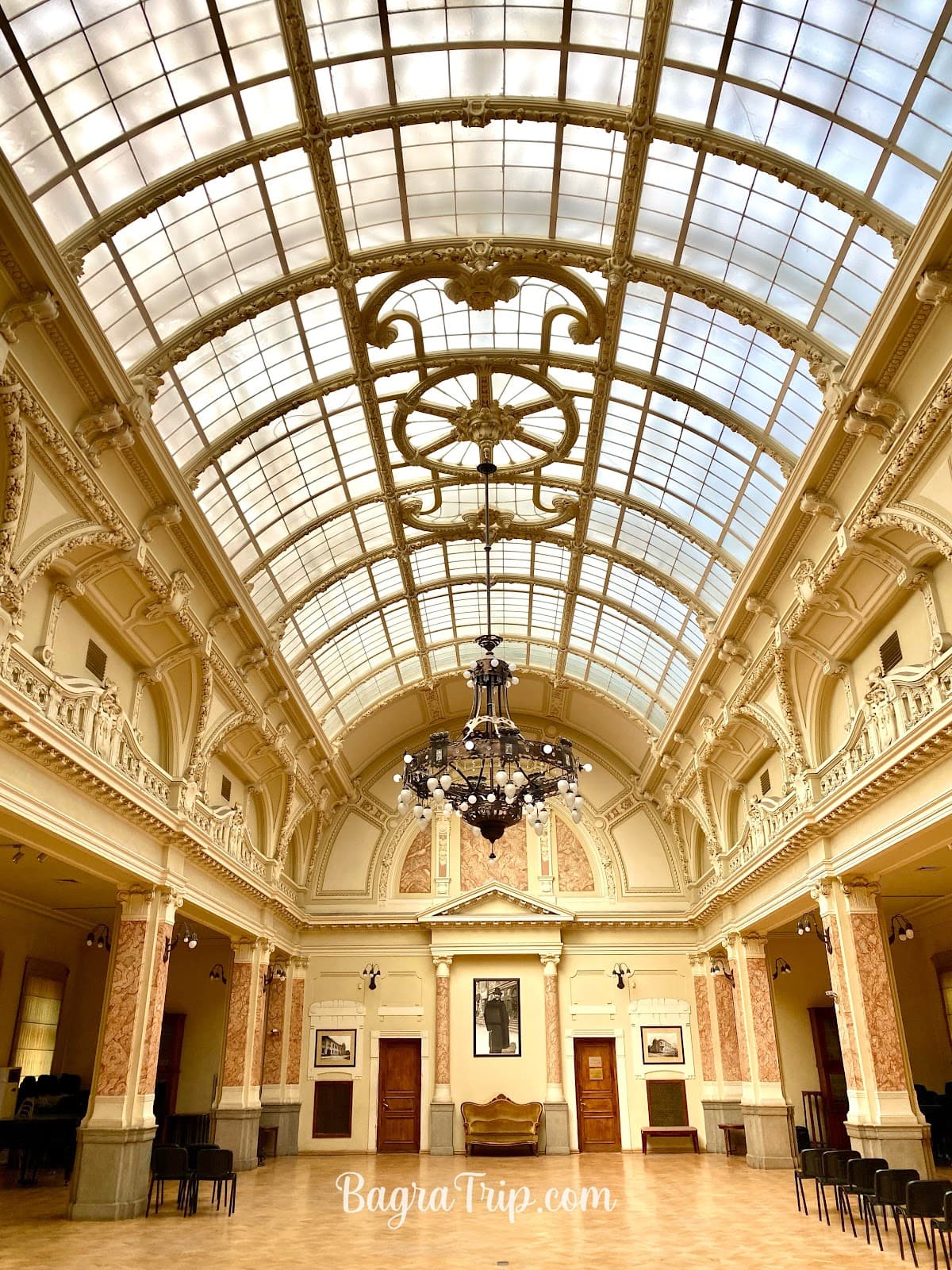




Social
from TikTok, Instagram & Reddit